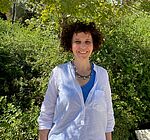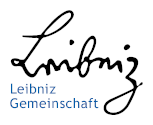- Das Institut
- Forschung
- Diktaturen im 20. Jahrhundert
- Demokratien und ihr historisches Selbstverständnis
- Transformationen in der neuesten Zeitgeschichte
- Internationale und transnationale Beziehungen
- Editionen
- Dissertationsprojekte
- Abgeschlossene Projekte
- Dokumentation Obersalzberg
- Zentrum für Holocaust-Studien
- Berliner Kolleg Kalter Krieg
- Publikationen
- Vierteljahrshefte
- Archiv
- Bibliothek
- Zentrum für Holocaust-Studien
- Aktuelles
- Termine
- Presse
- Neuerscheinungen
- Aus dem Institut
- Themen
- Spielfilm im Nationalsozialismus
- Reordering Yugoslavia, Rethinking Europe
- 75 Jahre Institut für Zeitgeschichte
- München 1972
- Confronting Decline
- Digitale Zeitgeschichte
- Zeitgeschichte Open
- Das Deutsche Verkehrswesen
- Bundeskanzleramt
- Demokratische Kultur und NS-Vergangenheit
- Geschichte der Treuhandanstalt
- Akten zur Auswärtigen Politik
- Dokumentation Obersalzberg
- Edition "Mein Kampf"
- "Man hört, man spricht"
- Newsletter
- IfZ
- Zentrum für Holocaust-Studien
- Fellowships
- Aktuelle Fellows
Aktuelle Fellows des Zentrums für Holocaust-Studien

Ewa Koźmińska-Frejlak, (PhD) is a sociologist and research fellow at the Jewish Historical Institute (JHI) in Warsaw. She specializes in Holocaust studies and the post-war in Poland. In 2015, she co-curated with Helena Datner the exhibition After the Holocaust. Central Committee of Jews in Poland 1944–1950 at the JHI. Dr. Koźmińska-Frejlak has authored numerous articles and book chapters on Jewish life during and after the Holocaust and has edited several publications, including Finkesztejn Family Correspondence, New York – Warsaw 1939–1941 also published in English (2022) and coauthored the Hashomer Hatzair Underground Press in the Warsaw Ghetto (2023). Since 2014, she has chaired the Editorial Committee overseeing the new editions of the publications that appeared under the auspices of the Central Jewish Historical Commission in Poland in the immediate postwar period. Her monograph, After the Holocaust: Assimilation Practices as Strategies to Strike Root in Post-War Poland (1944/45–1950), received the Józef A. Gierowski and Chone Shmeruk Prize for the best book on Jewish history and culture in Poland in 2022. She is currently working on a book about the interviewers who collected testimonies from Holocaust survivors immediately after the war.


